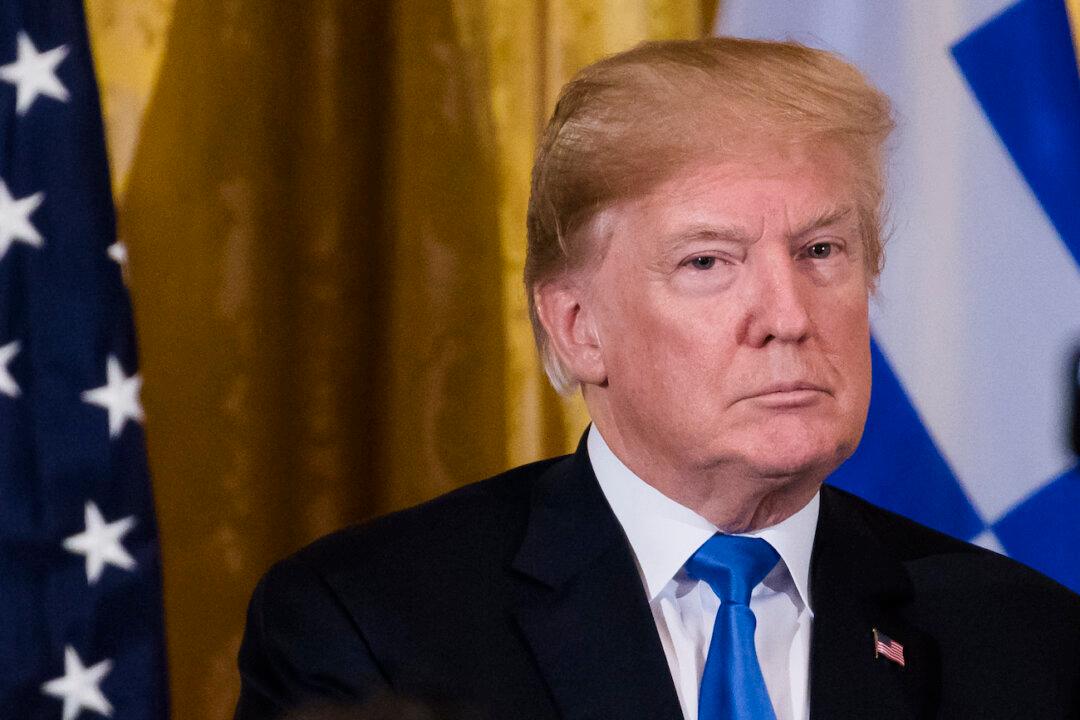President Donald Trump and Attorney General William Barr on Monday spoke out against the “defund the police” movement, a multi-hued effort that in its extreme application proposes disbanding police departments entirely in favor of ill-defined alternatives.
Speaking at a meeting with law enforcement officials and officers at the White House, Trump praised police for the nation’s low crime numbers and acknowledged their service.





